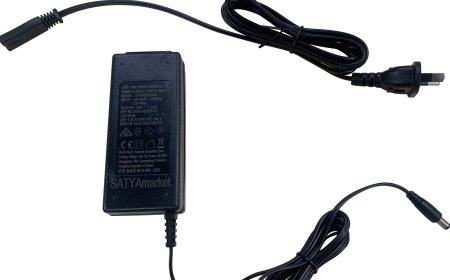How to Find Affordable Lodging in New Orleans
How to Find Affordable Lodging in New Orleans New Orleans is a city of vibrant culture, world-renowned cuisine, soul-stirring music, and historic architecture that draws millions of visitors each year. From the jazz-filled streets of the French Quarter to the moss-draped oaks of Garden District mansions, the city offers an unforgettable experience. But with its popularity comes a challenge: findin
How to Find Affordable Lodging in New Orleans
New Orleans is a city of vibrant culture, world-renowned cuisine, soul-stirring music, and historic architecture that draws millions of visitors each year. From the jazz-filled streets of the French Quarter to the moss-draped oaks of Garden District mansions, the city offers an unforgettable experience. But with its popularity comes a challenge: finding affordable lodging without sacrificing comfort, safety, or convenience. Many travelers assume that staying in New Orleans means paying premium prices, especially during peak seasons like Mardi Gras or Jazz Fest. The truth? With the right strategy, you can secure comfortable, well-located accommodations at a fraction of the cost. This guide provides a comprehensive, step-by-step roadmap to help you find affordable lodging in New Orleans—whether you’re a solo traveler, a couple, or a small group on a budget.
Step-by-Step Guide
1. Define Your Budget and Travel Dates
Before you begin searching for lodging, establish a clear budget. Determine how much you’re willing to spend per night and for your entire stay. This will immediately narrow your options and prevent decision fatigue. Keep in mind that New Orleans has seasonal price fluctuations. Peak seasons include February (Mardi Gras), April (Jazz Fest), and December (holiday events), when prices can double or triple. Off-season months—particularly July and August (hot and humid) and January (after New Year’s)—offer the best rates. Midweek stays (Sunday–Thursday) are also typically cheaper than weekends. Use this data to plan your trip strategically. A flexible date range can save you hundreds.
2. Consider Neighborhoods Beyond the French Quarter
The French Quarter is iconic, but it’s also the most expensive area to stay. Many travelers don’t realize that New Orleans has numerous other neighborhoods offering equally rich experiences at significantly lower rates. Consider these alternatives:
- Marigny and Bywater: Just east of the French Quarter, these artsy, bohemian neighborhoods are filled with colorful homes, local cafes, and live music venues. They’re a 10–15 minute walk or short streetcar ride to the Quarter.
- Uptown: Home to the historic St. Charles Avenue streetcar line, Uptown offers elegant architecture, tree-lined boulevards, and proximity to Tulane and Loyola Universities. It’s a 20-minute ride to the French Quarter via streetcar.
- Algiers Point: Located across the Mississippi River, this quiet, residential neighborhood offers stunning river views, local eateries, and a 10-minute ferry ride to the French Quarter. It’s one of the most underrated and affordable areas in the city.
- Mid-City: A residential hub with easy access to the Superdome and city parks, Mid-City is well-connected by bus and streetcar. You’ll find budget-friendly motels and vacation rentals here.
Staying in one of these neighborhoods not only reduces your lodging costs but also gives you a more authentic, local experience away from the tourist crowds.
3. Book Early—But Not Too Early
Booking too far in advance can lock you into higher prices if deals emerge later. Conversely, waiting until the last minute may leave you with no options or inflated rates. The sweet spot is typically 6–8 weeks before your trip for non-peak seasons, and 3–4 months ahead for major events. Set up price alerts on booking platforms to monitor fluctuations. Many hotels and vacation rentals lower prices as the check-in date approaches if units remain unsold. However, this strategy is risky during high-demand periods. Balance early planning with flexibility to capitalize on last-minute discounts.
4. Use Multiple Booking Platforms
Never rely on a single website to find lodging. Different platforms have varying inventory, pricing models, and exclusive deals. Compare prices across:
- Google Hotels: Aggregates data from dozens of sites and often shows the lowest available rate. Includes interactive maps and user reviews.
- Booking.com: Offers flexible cancellation policies and member discounts. Frequently features “Genius” loyalty discounts.
- Hotels.com: Rewards repeat bookings with a free night after 10 stays.
- Airbnb and Vrbo: Ideal for longer stays or group travel. Look for “entire home” listings with kitchens to save on meals.
- Hotwire and Priceline: Use “Express Deals” or “Name Your Own Price” to unlock hidden discounts. You won’t know the hotel name until after booking, but many offer top-tier properties at 40–60% off.
Always check the hotel’s official website. Many properties offer “Best Price Guarantee” programs that match or beat third-party rates, sometimes with added perks like free breakfast or parking.
5. Prioritize Properties with Kitchen Facilities
One of the biggest expenses on any trip is food. New Orleans is famous for its restaurants, but dining out every meal can quickly drain your budget. Choose lodging with a kitchenette or full kitchen. Even a small refrigerator, microwave, and coffee maker can make a huge difference. Stock up on groceries at local markets like Whole Foods, Rouses, or the French Market. Prepare simple breakfasts, snacks, and light dinners. This strategy can easily save $50–$100 per day. Many budget-friendly motels and vacation rentals in Uptown, Mid-City, and Algiers Point include kitchens as standard features.
6. Look for Free Amenities and Perks
Some properties offer valuable amenities that reduce your overall spending. Prioritize lodging that includes:
- Free breakfast: Even a continental spread with pastries, fruit, and coffee can offset the cost of one meal.
- Free parking: Parking in downtown New Orleans can cost $25–$40 per day. A free lot can save you hundreds over a week-long stay.
- Free Wi-Fi: Essential for planning, navigation, and communication. Avoid properties that charge for internet.
- City passes or discounts: Some hotels partner with local attractions to offer discounted or bundled tickets to museums, riverboat cruises, or ghost tours.
Read the fine print on each listing. Don’t assume amenities are included—verify them before booking.
7. Leverage Loyalty Programs and Credit Card Benefits
Even if you’re not a frequent traveler, signing up for free loyalty programs can yield savings. Marriott Bonvoy, Hilton Honors, IHG One Rewards, and Wyndham Rewards all offer members-only discounts, early check-in, and late check-out. Many credit cards also offer travel perks. For example, some cards provide automatic elite status, free nights, or statement credits for hotel bookings. Check your card’s benefits portal before booking. Even a single free night can cover an entire stay at a budget hotel.
8. Consider Alternative Accommodations
Traditional hotels aren’t your only option. Explore these cost-effective alternatives:
- Hostels: New Orleans has several highly-rated hostels, including The New Orleans Hostel and The Cane & Grain Hostel. Dorm beds start at $30–$45 per night; private rooms are $80–$120. Many include kitchens, free walking tours, and social events.
- Guesthouses and B&Bs: Smaller, family-run properties often offer lower rates than chain hotels. Look for ones with positive reviews mentioning cleanliness and hospitality. Many include homemade breakfasts.
- University housing rentals: During summer and holiday breaks, Tulane and Loyola University rent out dorm rooms and student apartments at deeply discounted rates. Search for “Tulane summer housing” or “Loyola student housing rentals” to find listings.
- House-sitting: Platforms like TrustedHousesitters connect travelers with homeowners who need pet or property care in exchange for free lodging. While less common in New Orleans, opportunities do arise, especially in Uptown and the Garden District.
These alternatives often provide more character and local insight than generic chain hotels.
9. Use Public Transportation to Avoid Car Rentals
Driving in New Orleans is not recommended. Traffic is congested, parking is expensive, and many historic streets are one-way or pedestrian-only. Instead, rely on public transit:
- Streetcars: The St. Charles line runs from the French Quarter to Uptown and is one of the oldest continuously operating streetcar lines in the world. A single ride costs $1.25; a 1-day pass is $3.
- Buses: The RTA bus network covers nearly every neighborhood. Fares are the same as streetcars.
- Ferry: The Algiers Point ferry is free and runs every 20 minutes. It’s a scenic way to cross the river and access affordable lodging.
- Bike rentals and scooters: Lime and Bird offer electric scooters; local shops like New Orleans Bike Tours rent bicycles for $15–$25 per day.
Staying near a streetcar or bus stop means you can explore the entire city without a car—and without paying for parking or fuel.
10. Negotiate and Ask for Discounts
Don’t be afraid to ask. If you’re booking directly with a hotel or B&B, call or email and inquire about current promotions. Mention if you’re traveling during the off-season, staying multiple nights, or are a student, military veteran, or senior. Many properties have unadvertised discounts they’re willing to offer. For longer stays (5+ nights), ask for a weekly rate. Even a 10% discount on a $150/night room adds up to $75 over a week. Politeness and initiative often pay off.
Best Practices
Read Reviews Critically
Reviews are invaluable, but not all are trustworthy. Look for patterns rather than isolated comments. If multiple guests mention “clean rooms,” “friendly staff,” or “quiet location,” those are reliable indicators. Be wary of reviews that are overly generic (“Amazing place!”) or contain excessive emojis. Check the date of reviews—recent feedback (within 3–6 months) is most relevant. Pay attention to photos uploaded by guests; they often reveal the true condition of the property.
Verify Location with Maps
Don’t rely on the hotel’s description alone. Use Google Maps to verify the distance to key attractions, public transit stops, and grocery stores. Type “French Quarter” into the search bar and use the distance tool to measure walking time from your potential lodging. A 15-minute walk is ideal; beyond 25 minutes may require frequent transit use. Also check for nearby safety indicators: well-lit streets, active storefronts, and pedestrian traffic.
Avoid Hidden Fees
Some properties advertise low nightly rates but tack on mandatory fees: resort fees, cleaning fees, city taxes, or parking charges. Always review the final price before booking. If a fee isn’t clearly listed, contact the property directly and ask for a full breakdown. In Louisiana, a 12% hotel tax is standard, but additional fees should be disclosed upfront.
Book Non-Refundable Only If You’re Certain
Non-refundable rates are often 20–30% cheaper. Only choose these if your travel plans are fixed. If there’s any chance your itinerary might change—due to weather, health, or other factors—opt for free cancellation. The flexibility is worth the extra cost. Many platforms now offer “free cancellation until 24 hours before check-in,” which provides a good middle ground.
Travel During Shoulder Seasons
Shoulder seasons—late September to early November and March to early April—offer the best balance of pleasant weather, lower prices, and manageable crowds. Temperatures are mild, and festivals like the French Quarter Festival (April) or the New Orleans Film Festival (October) add cultural richness without the peak-season frenzy. You’ll find better deals on lodging and more availability across all services.
Use Cashback and Reward Apps
Apps like Rakuten, Honey, and Capital One Shopping automatically apply coupon codes and offer cashback on hotel bookings. Install them on your browser or mobile device before searching. Some apps even track price drops after you book and issue refunds if the rate decreases. These tools require no extra effort and can save you 5–15% on every booking.
Stay Connected with Local Travel Blogs
Local bloggers often share insider tips that aren’t found on mainstream platforms. Search for “New Orleans budget travel blog” or follow Instagram accounts like @neworleanslocal or @nolaonabudget. These sources frequently post about pop-up deals, hidden-gem B&Bs, and neighborhood events that can influence your lodging choices.
Tools and Resources
Google Maps
Essential for visualizing location, transit options, and nearby amenities. Use the “Hotels” layer to see all properties in an area. Click on a listing to view photos, reviews, and prices from multiple platforms.
Google Hotels
One of the most powerful tools for comparing prices across booking sites. Filters allow you to sort by price, star rating, distance, and amenities. The price graph shows historical trends, helping you determine if a rate is truly a deal.
HolidayIQ and Trivago
Meta-search engines that scan hundreds of sites for the lowest rates. Trivago’s “Best Value” score combines price, reviews, and popularity to recommend top picks.
Airbnb and Vrbo
Best for longer stays, families, or groups. Use filters for “entire home,” “kitchen,” and “free parking.” Sort by “Price: Low to High” and check the cleaning fee before finalizing.
HotelTonight
Perfect for last-minute bookings. Offers steep discounts on unsold rooms, especially in the afternoon. Works best for weekday stays and non-peak times.
RTA New Orleans Transit App
Official app for planning streetcar and bus routes. Shows real-time arrival times and fare information. Download before you arrive.
Local Grocery Stores
Use Google Maps to locate Rouses, Whole Foods, and the French Market. Stock up on local specialties like beignets, muffuletta bread, and pralines for quick, affordable meals.
Facebook Groups
Search for “New Orleans Travel Deals” or “NOLA Budget Travelers.” Members often post about discounted stays, room-sharing opportunities, or temporary sublets. Be cautious and verify details before paying.
University Housing Portals
Visit tulane.edu/housing and loyno.edu/housing during summer months. Look for “Summer Housing” or “Guest Accommodations.” Rates can be as low as $40/night.
Travel Forums
Reddit’s r/NewOrleans and r/travel are excellent for asking specific questions. Post about your budget and dates—locals often respond with personalized recommendations.
Real Examples
Example 1: The Budget Solo Traveler
Sarah, 28, plans a 5-day trip to New Orleans in October. She has a $600 budget for lodging. She books a private room at The New Orleans Hostel for $42/night ($210 total). She uses the streetcar daily ($3 day pass) and eats breakfast at the hostel. She shops at the French Market for groceries and prepares simple dinners. She books a free walking tour through the hostel and uses the free Wi-Fi to plan her days. Total lodging cost: $210. She spends the rest of her budget on food, music, and a riverboat cruise.
Example 2: The Family of Four
The Garcias, a family of four, visit in late March. They want a kitchen and space for the kids. They find a 2-bedroom vacation rental in Uptown on Vrbo for $110/night ($770 total for 7 nights). The property includes a full kitchen, laundry, and free parking. They cook breakfast and lunch, dine out only for dinner. They ride the St. Charles streetcar to the French Quarter ($1.25 per ride). Total lodging cost: $770. They save over $1,200 compared to booking a downtown hotel.
Example 3: The Last-Minute Booker
Mark, 35, decides on a weekend getaway to New Orleans in November. He books two nights via HotelTonight on a Thursday afternoon. He finds a 3-star hotel near the French Quarter for $89/night (originally $189). The room has a view of the river, free parking, and breakfast included. He walks to the Quarter in 12 minutes. Total cost: $178. He saves $300 compared to booking a week earlier.
Example 4: The Off-Season Explorer
Linda, 62, visits New Orleans in July. She books a historic guesthouse in the Garden District through a local B&B website. The rate is $95/night (normally $175) because it’s the rainy season. She receives a handwritten welcome note and homemade beignets. She takes the streetcar daily and spends her afternoons reading under the oaks. She saves $80 per night and enjoys the city with almost no tourists.
FAQs
What is the cheapest month to stay in New Orleans?
July and August are typically the cheapest months due to high heat and humidity. Rates can be 40–60% lower than peak seasons. However, be prepared for afternoon thunderstorms and higher mosquito activity.
Is it safe to stay outside the French Quarter?
Yes. Neighborhoods like Marigny, Uptown, Algiers Point, and Mid-City are safe for tourists, especially in well-trafficked areas near streetcar lines. Avoid isolated streets late at night, as you would in any urban area. Always use common sense and stay aware of your surroundings.
Can I find affordable lodging during Mardi Gras?
It’s extremely difficult and expensive. Prices spike dramatically, and many properties require minimum stays of 5–7 nights. If you must visit during Mardi Gras, book 6–12 months in advance and consider staying in Algiers Point or nearby suburbs with ferry access.
Are hostels in New Orleans clean and safe?
Yes. New Orleans hostels are among the best in the U.S. They are modern, well-maintained, and staffed by friendly locals. Many have 24-hour security, lockers, and common areas. Read recent reviews to confirm.
Do I need a car in New Orleans?
No. Public transportation is reliable, and most attractions are accessible by streetcar, bus, or foot. Parking is expensive and complicated. Leave the car at home.
How much should I budget per night for affordable lodging?
For budget travelers: $60–$100/night. For mid-range: $100–$150/night. Anything under $60/night is rare unless you’re staying in a hostel or guesthouse outside the main tourist zones.
Are there pet-friendly affordable options?
Yes. Many vacation rentals and some motels allow pets for a small fee (usually $25–$50 total). Use filters on Airbnb or Vrbo to search “pet friendly.” Always confirm the policy before booking.
Can I negotiate rates at B&Bs?
Often, yes. Smaller properties are more flexible than chains. Call directly, mention your travel dates, and ask if they have any current promotions or discounts for longer stays.
What’s the best way to save on food while staying in New Orleans?
Stay in lodging with a kitchen. Buy groceries at Rouses or the French Market. Eat at local diners like Parkway Bakery (po’boys), Coop’s Place (fried chicken), or Dat Dog (hot dogs) for $8–$12 meals. Avoid tourist traps in the French Quarter—prices are inflated.
Are there any free attractions near affordable lodging areas?
Yes. Many neighborhoods offer free live music, parks, and historic walking tours. Jackson Square, City Park, and the New Orleans Jazz Museum (free admission on certain days) are accessible via public transit. The French Market has free entertainment and local crafts.
Conclusion
Finding affordable lodging in New Orleans isn’t about compromising—it’s about choosing wisely. By understanding seasonal pricing, exploring beyond the French Quarter, leveraging technology and loyalty programs, and prioritizing practical amenities like kitchens and transit access, you can enjoy the magic of New Orleans without breaking the bank. The city rewards those who plan with intention and curiosity. Whether you’re sipping coffee on a balcony in Bywater, riding the streetcar past centuries-old oaks, or enjoying a po’boy in a local diner, your experience will be richer when your lodging choices align with your values and budget. Use the strategies in this guide, stay flexible, and let the rhythm of the city guide you. New Orleans is waiting—not just for tourists, but for travelers who know how to find its true heart.




















